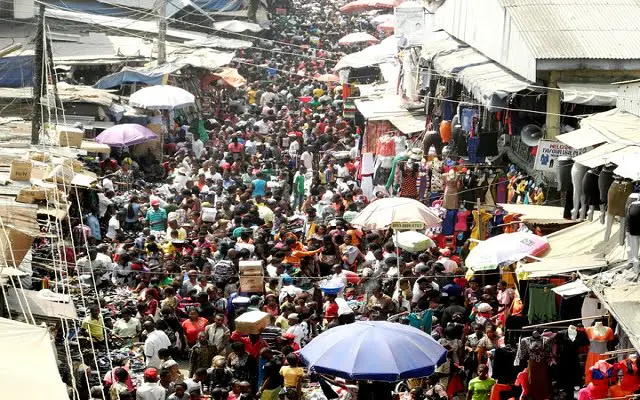When the Dangote Refinery finally started producing petrol earlier this year, many Nigerians thought they’d finally catch a break from the endless cycle of fuel price hikes. But instead of bringing relief, the cost of fuel has shot up again, reaching as high as N1,030 per liter. Families have been turning to their relatives abroad more than ever, as the cost of living in Nigeria has climbed to painful new heights.
For Nigerians in the diaspora, it’s becoming a case of “when it rains, it pours,” with increasing requests for financial help piling up.
Join our WhatsApp Channel“I’m Sending More Money, and It’s Still Not Enough”
Across Europe and the U.S., Nigerians abroad are feeling the pinch from rising fuel prices at home. It’s no longer just about sending money to help out occasionally; for many, it’s now a constant need.
“I used to send money home once a month, and my family managed just fine,” says Omotola Ibikunle, a nurse in Canada. “But with the way costs are rising back in Nigeria, I’m sending money almost every two weeks now. It’s like I can’t catch a break.”
The root of the problem is that everyday expenses—transportation, electricity, even groceries—are shooting through the roof. Families in Nigeria are struggling to keep up, relying more and more on money sent from abroad just to get by. And with fuel prices still on the high side despite the hopes that came with the Dangote Refinery’s launch, the pressure shows no signs of letting up.
Dangote Refinery: What Happened to the Price Drop?
The $20 billion Dangote Refinery, which started producing petrol earlier this year, was supposed to be a game-changer. By producing fuel locally, it was expected to cut down Nigeria’s reliance on imported products and, hopefully, stabilise prices. The government even introduced a Naira-for-crude deal to help ease foreign exchange pressures and make the refinery’s operations more sustainable.
But while it was a step in the right direction, reality has been a bit messier. The NNPC recently ended its exclusive purchase agreement with Dangote, allowing other marketers to buy directly from the refinery. This move was supposed to open up the market and encourage competition, but prices have stayed stubbornly high, with petrol now selling for as much as N1,030 per liter in some places
The issues are not just about production; they’re about logistics, distribution, and the complexity of fully deregulating a market that has long been controlled. Dangote’s ramp-up has been gradual, and challenges with distribution mean that Nigeria is not quite seeing the price drop many had hoped for.
A Heavy Burden on Nigerians Abroad
The rising fuel costs back home are more than just numbers for Nigerians in the diaspora; they represent a growing burden. It’s not just the financial pressure—it’s the emotional weight of knowing that your family is struggling and counting on you to step in. For many, it feels like they are carrying two households: one abroad and one back in Nigeria.
“I have my own bills to pay here in London, but my family back home doesn’t see that. They only see that prices keep going up,” shares Francis Dozie, a software engineer in the UK. “It’s hard to say no when you know your loved ones are genuinely struggling.”
The increased demand for remittances is also squeezing the financial plans of Nigerians abroad. With living costs climbing in their host countries too, many find themselves sacrificing savings and personal goals just to keep sending money home.
The Economic Fallout: More Than Just Fuel Prices
Rising fuel costs are a big part of the story, but they’re not the only factor. The ongoing pressure on the naira and Nigeria’s reliance on imports make it even harder for families to cope. What’s more, the recent deregulation moves mean that market prices are being determined more by global oil prices and local production constraints than by government subsidies.
While the Naira-for-crude policy with Dangote was designed to alleviate some of this pressure by allowing local transactions in naira, it’s not a quick fix. The naira’s value has continued to weaken, making each dollar sent from abroad worth less and less in Nigeria. It’s a situation where the solution is just as complex as the problem(
What Needs to Change?
The way things are going, it’s clear that Nigerians, whether at home or abroad, lean heavily on each other during tough times. But let’s be real—relying on remittances alone is like putting a band-aid on a deep wound. It might provide temporary relief, but it doesn’t solve the root problem. Here are some practical steps that could actually make a difference:
Go Big on Renewable Energy
Look, with petrol prices pushing past N1,000 per liter in some places, it’s obvious that running on generators just isn’t cutting it anymore. The national power grid is still unreliable, and for many, the only way to keep the lights on is by burning through expensive fuel. Now would be a great time for Nigeria to double down on renewable energy, like solar power.
Imagine how much easier life could be if rural and urban households had access to solar systems that didn’t break the bank. It’s not just a nice idea; it’s doable. If the government offers incentives like tax breaks for solar installations or grants for small businesses that want to go green, it could really take off. Plus, more renewable energy would mean less pressure on fuel demand—and hopefully, lower prices for everyone
Give Low-Income Households a Fighting Chance
It’s no secret that scrapping fuel subsidies hit poorer Nigerians the hardest. Even though the government has promised palliatives, many families are still feeling the sting. Think about it: when fuel costs go up, so does everything else—from transport fares to the price of a loaf of bread.
A little extra help could go a long way here. How about more direct financial aid, like cash transfers for low-income families? Or even subsidies on essentials like food and transport? There’s already talk about using some of the gains from the new Naira-for-crude policy to support citizens, so why not scale that up to create a proper safety net? It would ease the pressure on both families at home and the relatives abroad who send money every month to help them get by
Get Serious About Local Fuel Production
Yes, the Dangote Refinery is a big deal—it’s Africa’s largest refinery, and it was supposed to bring down fuel prices. But here we are, and petrol is still pricey. The recent move to let other marketers buy directly from the refinery instead of relying solely on the NNPC’s old deals is a step forward, but it’s not enough on its own.
Nigeria still imports a large chunk of its refined fuel, leaving us vulnerable to global price changes and supply hiccups. If we really want to make a difference, we need to boost our local refining capacity even further and fix the infrastructure issues that add to the cost, like bad roads and pipeline leaks. Imagine if more refineries were up and running, and the supply chain was efficient. Fuel would be cheaper, and we’d be less dependent on imports
At the end of the day, these changes are not just nice-to-haves—they’re essentials. They would ease the load on everyday Nigerians and make things a bit easier for those abroad who send money back home. It’s time to tackle the fuel crisis from the ground up and create a more resilient economy that can stand on its own.
“How Long Can We Keep This Up?”
As the fuel price saga continues, Nigerians abroad are left asking: How long can they continue carrying this weight? The hope is that things will improve as the Dangote Refinery ramps up and more policy adjustments take effect. But until then, it seems that the diaspora will keep stepping up, even if it means making sacrifices of their own.
For now, it’s a shared burden—a reminder that even miles away, the economic realities of Nigeria still hit home.
















Follow Us